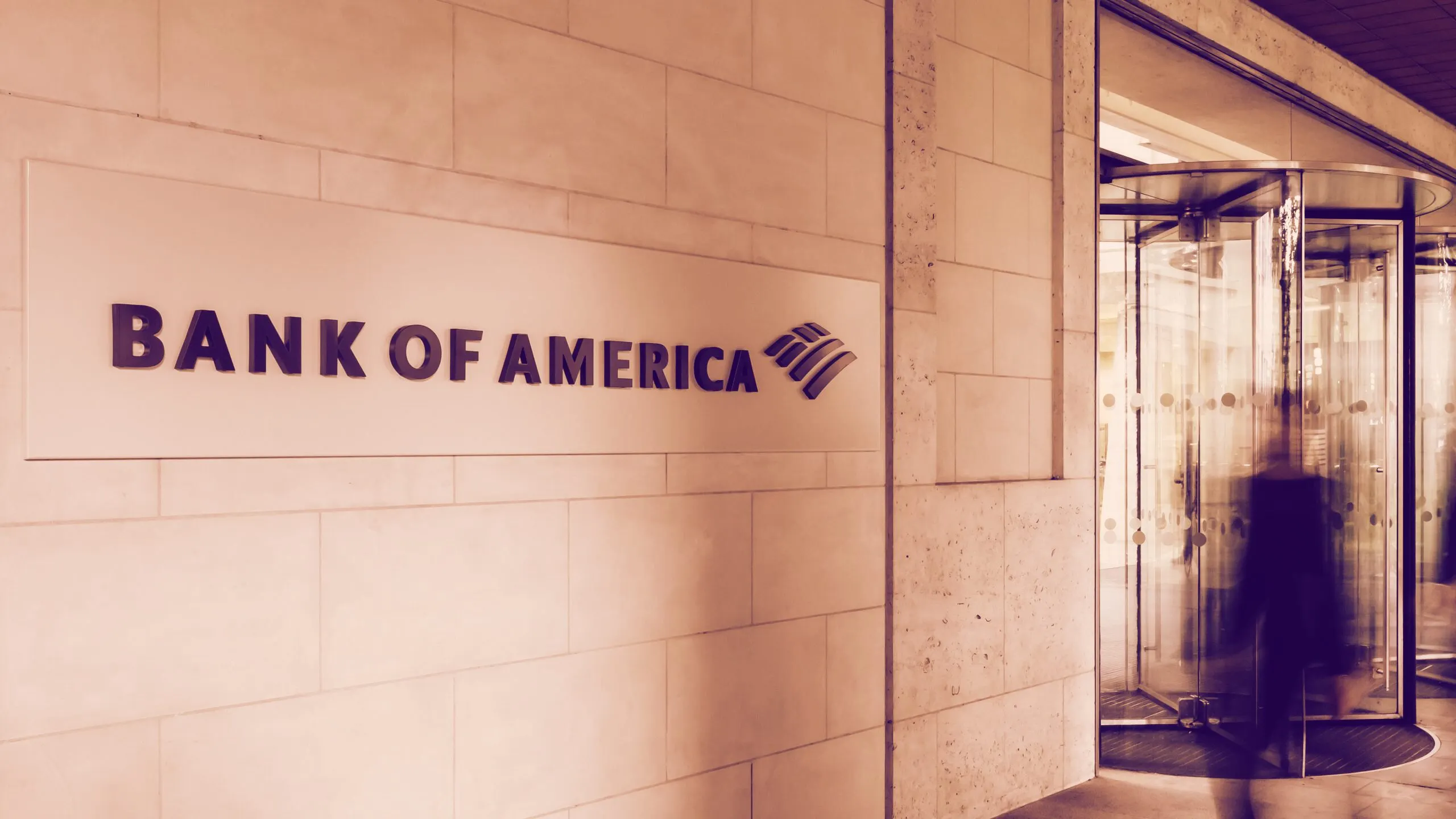In brief
- BoA joins Credit Suisse in testing blockchain for stock clearing.
- Blockchain promises to eliminate the sort of meltdown that forced Robinhood to halt GameStop trades.
Bank of America has become the latest big bank to try out blockchain for stock settlement—a move that could help avert the sort of market meltdown that forced Robinhood and other brokerages to halt trading in meme stocks like GameStop this spring, which enraged investors at the time.
The bank revealed its plans to Bloomberg on Monday and said that it's been using the Paxos blockchain to clear internal stock trades. Provided it receives regulatory approval, the bank plans to offer the service to its clients.
Bank of America, the second biggest bank in the U.S., is the third major bank to try out Paxos for stocks. Paxos is a New York-based blockchain infrastructure firm that supports PayPal's crypto efforts. As Decrypt reported last month, European banking giant Credit Suisse is also tinkering with the product.
The banks' foray into blockchain for stock clearing is significant because the technology promises to slash the time it takes to clear a stock trade from days to minutes.
The reason stock trades currently take so long is that market participants must rely on the Depository Trust & Clearing Corp (DTCC), a 50-year-old institution that acts as a backstop and clearing service for everyone in the market. Currently, the DTCC offers a "T+2" settlement process via legacy software, which means it takes two days to clear a trade and finalize all the paper work.
This lag in settlement time is what gave rise to this spring's meltdown over GameStop shares. Specifically, the delay led the DTCC to ask Robinhood and others to post extra collateral in case the shares, which are extremely volatile, dropped in price during the gap in time when a trade occurred and when settlement took place. Such a demand would have been unnecessary if the settlement could have taken place in minutes via a blockchain.
The GameStop incident also led Robinhood'd CEO to publish a blog post calling for "T+2 to go," and for real-time settlement of the sort that blockchain technology can provide.
In the bigger picture, the Bank of America initiative shows how traditional stock trading infrastructure is under pressure not only from the likes of Binance and Coinbase—which offer a growing array of tokens that can be traded in near-real time—but by firms like Paxos, which are quietly remaking the financial plumbing that powers Wall Street.
For now, the DTCC is not going anywhere, in part because stock settlement and clearing is a highly regulated field where major changes require the blessing of the SEC or Congress. But in the long term, blockchain could be poised to challenge or even replace the decades old institution.

